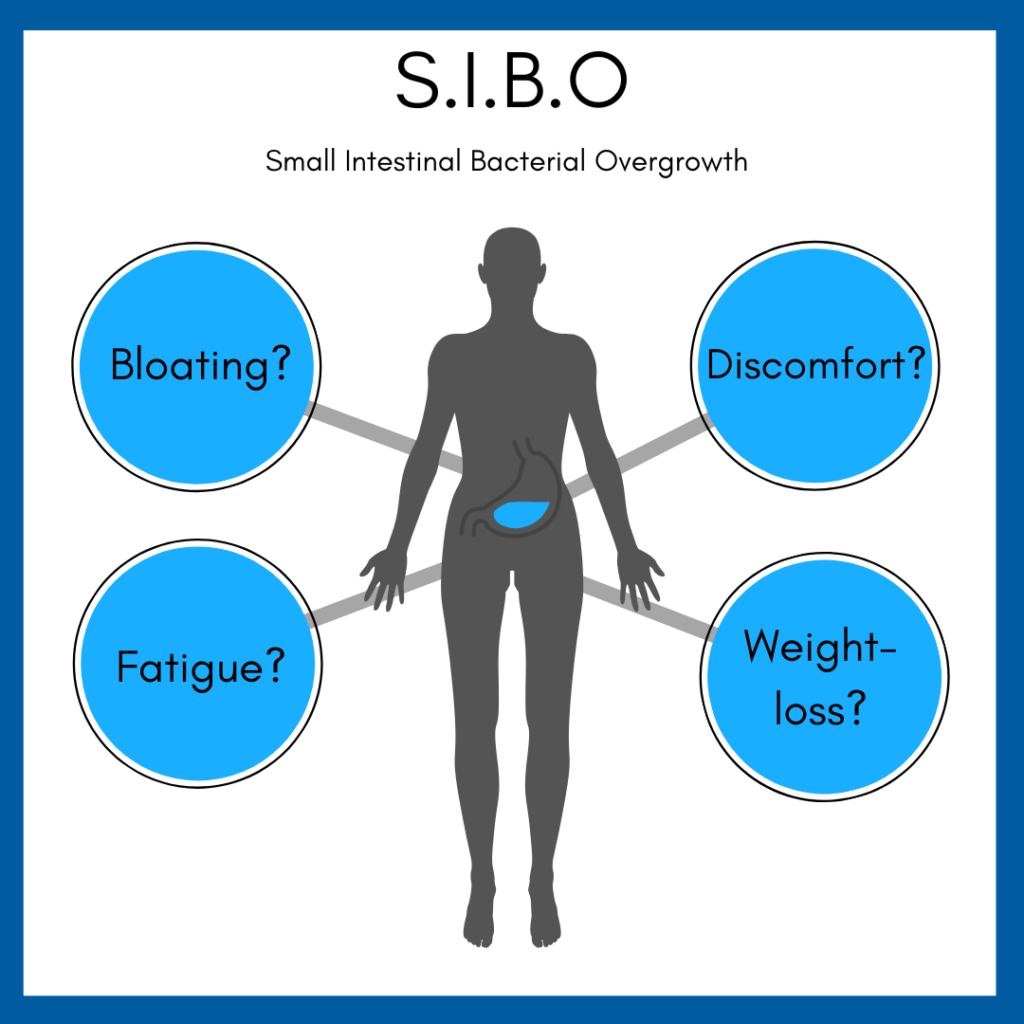Over the last three decades, there has been growing recognition for the role of gut bacterial in the health of the gastrointestinal tract. It has been found that anywhere between 17 – 85% of cases of irritable bowel disease may in fact be attributed to an underlying overgrowth of bacteria into the small intestines, called SIBO (small intestinal bacterial overgrowth). It is important to note that this is NOT an infection, but an overpopulation of bacteria in a location not meant for such high concentrations.
Common symptoms include:
– gas (belching or flatulence)
– stomach pain
– diarrhea, constipation, or both
– bloating
– fatigue
– in extreme cases, weight loss

The small intestine’s role is primarily that of nutrient absorption, and therefore overgrowth in this area allow the bacteria to rob you of essential nutrients. Vitamin D, K, iron and b12 deficiencies are popular among these patients.
The inflammation produced by the endotoxins of the bacteria are also an attributing cause to leaky gut syndrome and the development of multiple food sensitivities. Furthermore, SIBO can inhibit nutrient absorption and lead to carbohydrate intolerance, malabsorption/malnutrition, anemia, weight loss, and so on. Bacterial imbalanced can also change the way hormones are metabolized and excreted, and have been correlated with acne, irregular periods, and other hormonal issues like adrenal fatigue.
Patients with gastrointestinal distress may benefit from SIBO testing, especially those with a history of chronic constipation, diarrhea, weak stomach acid, or generalized maldigestion. Successful eradication of SIBO has been shown to significantly reduce bloating, gas, diarrhea, and abdominal pain in patients.
Remember… the bacterial strains in our guts are not just a group of individual organisms, but a collection of organisms that operate as an ecosystem !
You can’t cut down the rainforest and expect it to regrow in a day. Probiotics have been shown to only repopulate the gut for up to 21 days following discontinuation, so ensuring survival of the original beneficial organisms in essential. Furthermore, while Specific Carbohydrate/FODMAPs diets have been shown to be helpful, one must remember the problem lies not in the food itself, but what your ecosystem is doing to the food, and therefore diets should never be the long term solution. If they are, you haven’t corrected the problem.
The key approach that differentiates our Naturopaths from other practitioners treating SIBO is her focus on maintaining the beneficial bacteria! Emphasis is placed on saving butyrate, propionate, and acetate producing beneficial bacteria (lactobacillus and bifido bacterial strains), all while eradicating the bacterial overgrowth.
Once the terrain is reset and repopulated, associated conditions that may have been attributing to symptoms are then address, all while ensuring chance of recurrence is minimized.
The goal of treatment is to address the underlying overgrowth and resolve symptoms for good.
If you have any further questions, feel free to contact our Naturopaths here.